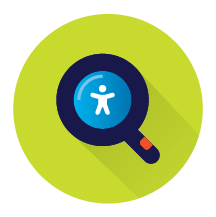Guest blog post by Jasmine de Guzman, Manager of Revenue, Marketing at Acquia Optimize - an Optimere brand.
Data privacy may (or may not!) be something you are familiar with - but if you have visited any website, then you have encountered it (whether you know it, or not).
Why do I need data privacy?
In a world of online shopping, digital platforms, and social media, we've all got digital profiles that contain personal data to some degree. In fact, you'd probably be surprised how many businesses and organizations have collected, used, and shared your personal data. Companies collect your data through the use of "cookies."

How can data privacy regulations help me?
Data privacy regulations are designed to protect and help you regain control over your personal data. Data privacy regulations are intended to require organizations to disclose the purpose of data collection and processing, as well as if the personal data is being shared, and if so, with whom. User consent provides individuals with the ability to opt in -- or opt out -- of their data being collected, processed and shared.
Cookies are a bit of code placed on your website to collect information. This allows users to have a more personalized experience on your website, like “remembering” what articles you read or what you had in your shopping cart. But cookies also raise privacy concerns. Cookies are grouped based on type and function, in one of the following four categories:
- Essential cookies are required to enable basic website functionality.
- Marketing cookies are used to provide advertising tailored to you and your particular interests.
- Statistics cookies allow website operators to identify technical issues and site performance.
- Preference cookies allow the website to keep track of your choices (e.g. region,user name, language) in order to provide more personalized features that correspond with them.
What website content do I need to check?
A few common examples of items that need to be addressed on websites: are:
1) Check Cookies - Now that you know what they are, ask your web developers what cookies are used on your website and how you use cookies. Then you need to have a popup banner to let users choose which cookies to allow. Make sure the notification is accessible. Our experts at Acquia Optimize can also help.
2) Check for personal data listed in the content of your web pages
4) Update your privacy policy once a year.
5) Ensure users can opt out of their personal data being sold to third-parties.

Request a Free Accessibility Scan for your Website
A service from our partner, Acquia Optimize. Free for a limited time!
What is being done to improve data privacy?
In June 2018, California legislators enacted the California Consumer Protection Act (CCPA). It took effect in January 2020. It has become the pillar for enhancing data protection for consumers with the intention of protecting personal data, such as individuals names, household data, and banking information.
How can I tell if my business website is compliant with CCPA?
Check with your legal and IT team. If you don’t have a large team to help, use CCPA compliance software and ask a professional. Acquia Optimize’s Consent Manager is an example of software that can help you determine if your website complies with the regulations.

Do I really need to worry about data privacy?
You may be asking, does my organization really need to worry about data privacy? If you meet the CCPA's business specifications, then yes - you need to be concerned about data privacy. Especially as failing to address data privacy may result in fines of $2,500-$7,500 per infraction.
Consumer awareness continues to grow, and high-profile data privacy settlements like the $92 million payout by TikTok shows there are real consequences for businesses that fail to adopt a proactive and consent-driven approach to data privacy.
Your customers are concerned about data privacy.
But beyond that, more than half of consumers were more concerned about data privacy in 2021 compared to the previous year. So regardless of the size or your business, prioritizing data privacy on your website is important for continued trust and transparency with your website visitors.
But my business isn’t in California or the EU. Do the regulations apply to me?
In short, if you have customers or website visitors from California or the EU, then yes, you need to comply with the regulations.
Like the European Union’s GDPR, the CCPA does not only apply to businesses physically located in California but also for any business that has customers or website visitors from the state.
This means businesses need to take CCPA compliance into account as part of their website strategy.
If your business meets any of these criteria, you need to comply with the CCPA:
- Have a gross annual revenue of over $25 million
- Buy, receive, or sell the personal information of 50,000 or more California residents, households, or devices; or
- Derive 50% or more of their annual revenue from selling California residents’ personal information.
Data privacy and user consent are hot topics
Today, most websites track and store your data to some degree, and that is why data privacy and user consent are growing topics of discussion not only among marketers, communicators and webmasters, but also among your website visitors.
From a legal standpoint, its privacy and user consent are big news. Legislation, such as the California Consumer Privacy Act (CCPA) in the United States and the European Union's General Data Protection Regulation (EU GDPR), have made headlines across the globe, forcing organizations to change the way they collect and store personal data. Individuals have the power to revoke consent.
These regulations are paving the way for more data privacy regulation. The topic will only grow in relevancy as we continue to move towards a digital-first world. That's why getting ahead in understanding what user consent is – and equipping your organization with the knowledge to address data privacy – is vital in 2022.

Get started with data privacy and user consent on your website
At Acquia Optimize, we encourage all businesses and organizations to take a proactive approach to data privacy. We offer a dedicated data privacy module to automate data protection on your website, as well as Acquia Optimize Consent Manager for straightforward user consent compliance for both CCPA and GDPR. Want to see it live in action? Request a free data privacy scan of your website. LRS Web Solutions and our Acquia Optimize team will walk you through the results, and help you on a path to better data privacy compliance in 2022.
When it comes to compliance, you don’t want to guess.
Claim your Free Website Scan
Read more about website accessibility
Acquia Optimize is a SaaS company focused on web governance and accessibility compliance.
LRS Web Solutions has partnered with Acquia Optimize since 2019 to improve web accessibility, and improve website management and redesign processes.